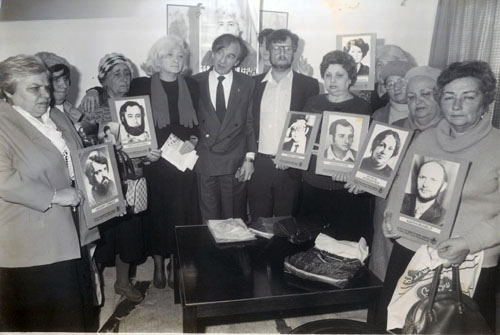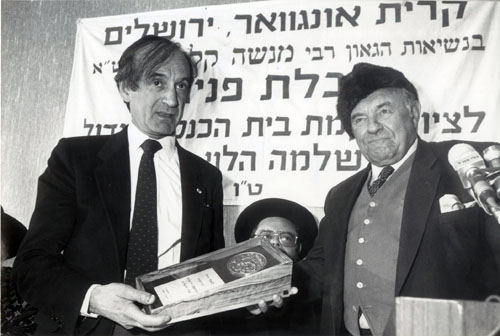
MOSCOW (Press Release)– Limmud FSU, in partnership with the Shem Olam Institute and the Nativ organization, will host a rare photographic survey of the life of Elie Wiesel, from Aug. 24 until the end of September at the Israeli Cultural Center in Moscow.
An array of VIPs will participate the opening of the exhibition, including the chief rabbis of Russia, Berel Lazar and Avraham Shayevich; Russian Jewish Congress President Yuri Kenner; Israel’s Minister of Immigrant Absorption Sofa Landver; Conference of European Rabbis President Pinchas Goldschmidt; Euro-Asian Jewish Congress Secretary General Mikhail Chlenov; Israeli-Russian Business Council Chairman Dr. Temur Ben Yehuda; and the founder and chairman of Limmud FSU, Chaim Chesler.
Curating the Wiesel exhibit is Yoel Rappel, the founder and director of the Elie Wiesel Archive at Boston University. The exhibition will showcase milestones of Wiesel’s life from his youth before and during the Holocaust to his work as a novelist, journalist, Jewish leader and Nobel Prize winner.

Wiesel was born in 1928 in Sighet, Transylvania, now in Romania. He was just 15 years old when the Nazis deported him and his family to Auschwitz. His mother and younger sister perished, yet his two older sisters survived. Elie and his father were later transported to the Buchenwald concentration camp, where his father died shortly before the camp was liberated in April 1945.
Wiesel was a leading supporter of the movement to free Soviet Jewry and in 1966 wrote a highly influential book on the struggle, “The Jews of Silence.”
In 1978, U.S. President Jimmy Carter appointed Wiesel as chairman of the President’s Commission on the Holocaust. In 1980, he became the founding chairman of the U.S. Holocaust Memorial Council. Wiesel and his wife Marion established the Elie Wiesel Foundation for Humanity, to combat indifference, intolerance and injustice. He received 140 honorary degrees from institutions of higher learning all over the world.
Elie Wiesel died in New York in July this year.
*
Preceding provided by Limmud FSU. Comments intended for publication in the space below MUST be accompanied by the letter writer’s first and last name and by his/ her city and state of residence (city and country for those outside the United States.)